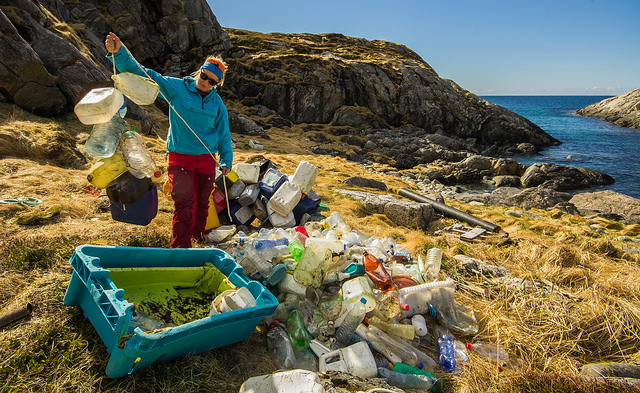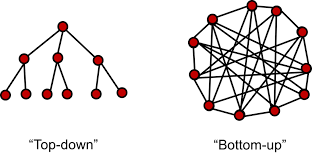Search Results for: feed
Single-Use Plastics Need Comprehensive Federal Legislation
Despite state and local action, more effective reduction of single-use plastics must come from Congress.
Editor’s note: this article was originally published in The Regulatory Review on February 13, 2019. Plastic pollution appears to be arising ever more frequently in the news. Companies like Starbucks have announced voluntary steps to rid their stores of plastic straws. China is wielding its “National Sword” policy, which places restrictions on the amount and type of plastic waste it …
Continue reading “Single-Use Plastics Need Comprehensive Federal Legislation”
CONTINUE READINGBottoms-Up! An Emerging New Governance System (4)
We can think of the energy system as a kind of ecosystem, and renewables as an invasive species.
As I’ve discussed the earlier three posts in this series, it is possible to imagine a cycle of positive feedback, in which the history of past climate efforts increases the likelihood of future ones and even draws more jurisdictions into the effort. But it is also possible to imagine that bottom-up efforts might not catch …
Continue reading “Bottoms-Up! An Emerging New Governance System (4)”
CONTINUE READINGBottoms-Up! An Emerging New Governance System (3)
Bottom-up strategies can ultimately pave the road for stronger international agreement.
It is difficult to measure the extent of positive feedback between climate initiatives. But it seems evident that such feedback does exist. A major climate initiative in one jurisdiction seems to encourage climate action elsewhere. This makes climate action a more appealing prospect for any individual jurisdiction, because by acting it can increase climate actions …
Continue reading “Bottoms-Up! An Emerging New Governance System (3)”
CONTINUE READINGBottoms-Up! An Emerging New Governance System (2)
Bottom-up appraches aren’t just fallbacks when top-down fails. They have their own strengths.
There are some obvious advantages to top-down climate police, whereby a uniform global climate policy is adopted at the global level and then seamlessly implemented by nations, or whereby a similar process takes place at the national level. Of course, this top-down model requires first global agreement on a uniform policy and then effective …
Continue reading “Bottoms-Up! An Emerging New Governance System (2)”
CONTINUE READINGBottoms-Up! An Emerging New Governance System (1)
In the past twenty years, climate policy has taken an unexpected form. Here’s what to expect.
There’s been a major change in the way environmental governance works, which is most obvious in terms of climate policy. We initially expected climate policy to be set at the international level, followed by incorporation into national legislation, and implementation by agencies and lower levels of government like states. But this top-down governance scheme isn’t …
Continue reading “Bottoms-Up! An Emerging New Governance System (1)”
CONTINUE READINGTo Be or Not to Be an Energy Utility
Questioning the continued existence of California’s largest energy utility
What can we do to ensure the safety of the massive electric and natural gas delivery systems that we rely on every day? Eight years after the horrific explosion and fire stemming from one of the Pacific Gas and Electric Company’s (PG&E’s) natural gas pipelines in San Bruno, California, the state’s legislators and utility regulators …
Continue reading “To Be or Not to Be an Energy Utility”
CONTINUE READINGStreamlining Permitting and Regulatory Processes for Sustainable Freight Projects
New Berkeley Law report for the Governor’s Office details policies to speed up the transition to sustainable freight in California
A new report from UC Berkeley School of Law, Streamlining Sustainability, outlines a set of policy reforms and other measures California leaders can enact at the state and local level to increase the sustainability and efficiency of the state’s freight system. Freight is responsible for hundreds of thousands of jobs in California and feeds commerce …
Continue reading “Streamlining Permitting and Regulatory Processes for Sustainable Freight Projects”
CONTINUE READINGOn the present improbability and future necessity of carbon pricing
Mapping a politically feasible roadmap towards a future, rigorous carbon pricing system
Carbon pricing is in the news right now—and not in a good way. Whether it is French protests over gas taxes, political challenges to Canada’s new federal carbon price system, voter rejection of a carbon price in Washington state, or (yet another) Australian government falling because of disputes over carbon pricing, the political challenges of …
Continue reading “On the present improbability and future necessity of carbon pricing”
CONTINUE READINGTwo Years & Counting: A Historical Perspective
How does Trump compare with Bush, the last GOP President?
This is the second of three posts assessing the first two years of the Trump Administration. We all seem to be subscribed to the “All Trump News, All the Time” newsfeed. It may be helpful to step back a bit and compare Trump with his last Republican predecessor, George W. Bush. How do the two …
Continue reading “Two Years & Counting: A Historical Perspective”
CONTINUE READINGClimate Negotiations Start in Poland: Setting the Stage
Much at Stake in COP-24, Including Negotiation of Paris Rulebook to Implement 2015 Commitments
This week and next, negotiators are meeting in Poland for the big annual international climate-change meeting. This meeting, formally, is the 24th Conference of the Parties to the UN Framework Convention on Climate Change, the 1992 treaty that provides the foundation for all official international action on climate change, and informally is called “COP-24.” It …
Continue reading “Climate Negotiations Start in Poland: Setting the Stage”
CONTINUE READING










